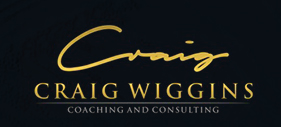BE A GREAT COMMUNICATOR
Your role in an insurance agency is not just about selling a product or service; it’s about building and maintaining relationships that can lead to the long-term success of your agency. Excellent customer communication is key to creating trust, satisfaction, and loyalty. Exceptional communication is truly an art in all its forms; writing, speaking, presenting. Below are some out top tips to improve your skills.
Are you listening?
It is common for people to multitask as often as possible in their role and it can really improve efficiency. Please keep in mind that one of the foundational principles of excellent communication with customers is active listening. When you actively listen to your customers, you not only hear their words, but you also understand their needs and concerns and you catch details that are important to know for their insurance. To effectively do this, you must give your undivided attention and ask clarifying questions. It may feel like this is a detriment to the business but not actively listening is often the cause of mistakes, misunderstandings, frustrated clients, and dissatisfaction. Taking a few minutes to listen, and I mean really listen, will save much more time in the end and result in happier clientele.
Not only do you want to make sure clients feel like you are listening to them, but you also want to make sure the proper emotions are being used in your communication. Customers want to feel understood and appreciated, and showing empathy can go a long way in achieving this. Empathizing with your customers’ concerns, needs, and emotions can help you provide more personalized and effective solutions. It’s not just about solving a problem; it’s about showing that you care about their experience.
Straight to the point!
Clear and concise communication is essential to excellent communication. This not only helps with efficiency, but it also helps avoid misunderstandings and confusion. No matter which form of communication you are using, make sure your messages are easy to understand and use simple language when explaining products or services. Don’t use industry or internal jargon, acronyms, or technical terms. When you make things simple, you’re not dumbing down the content. You’re helping your clients understand in terms they are familiar with. When sending written communication, such as emails, letters, or text messages, proofread to eliminate errors, and be mindful of being professional. It is possible to communicate too much. Whether you are speaking to someone or typing out your thoughts, stay focused on the point of what the client is trying to achieve. Don’t overeducate, oversell, or overtalk. Every client is different. Some want details and to know everything while others just want the basics and things to be communicated swiftly and easy to digest. It is best to communicate how your client wants to, including the form of communication, the length, and the detail.
Help them understand with examples!
When someone is struggling to understand it often helps to present examples and concepts, they are familiar with. For example, if your client is short on coverages and you are presenting a premium increase for the additional coverage you could say “that’s just a cup of coffee a day at home instead of in a drive thru.” Humanizing numbers or contractual language is one of the best ways to communicate your insurance knowledge in a way that clients remain engaged and can better understand your suggestions or explanations.
People are impatient!
It’s the truth, isn’t it? You can help your own time management and minimize their disappointment by having guidelines and expectations. For example, do you treat all forms of communication at the agency equally and answer them in the order received or are you handling the incoming calls as the priority and then checking voicemail hours into the day and they’ve just been sitting there? If you are doing this, I highly recommend stopping because chances are many of those voicemails have already called back in. This not only creates inefficiencies and unnecessary work, but it is not a good customer experience. In today’s digital age, customers expect prompt responses but sometimes their expectations are unreasonable. You can help set those expectations by clearly explaining when you will be back in touch or when they can expect to see something completed.
Give the people what they want!
Most insurance agency communication from clients will result in a solution to something. A solution to coverage changes, a solution of what to do about a claim, or a solution to a problem. Go into every conversation with a problem-solving mindset and it will make a difference. Make sure you understand what they need, provide clear ideas and solutions, take responsibility for any issues they’ve experienced from any part of your company, and follow up to ensure that everything has been resolved to the customer’s satisfaction. If we don’t listen effectively, provide a solution to their problem, or we don’t show empathy or ownership for the additional stress we’ve caused them you are going to lose those customers. Customers appreciate honesty and transparency especially in the event there is not a solution you can offer.
Excellent communication can set your business apart from the competition. By actively listening, communicating clearly and concisely, responding in a timely manner, and demonstrating that you are knowledgeable and trustworthy, you can build strong, lasting relationships with your customers. This not only creates happy customers that will be with you for years to come, but this will also result in more personal referrals and more positive endorsements of your agency on social media and search engines.

